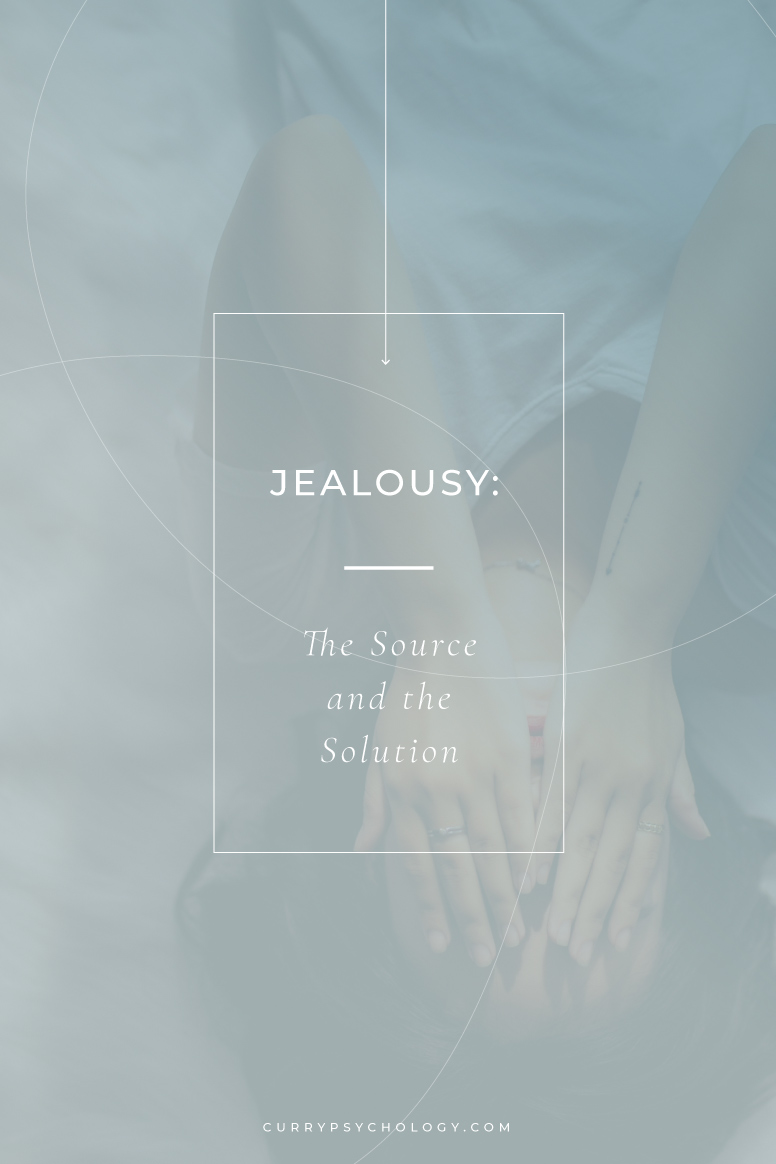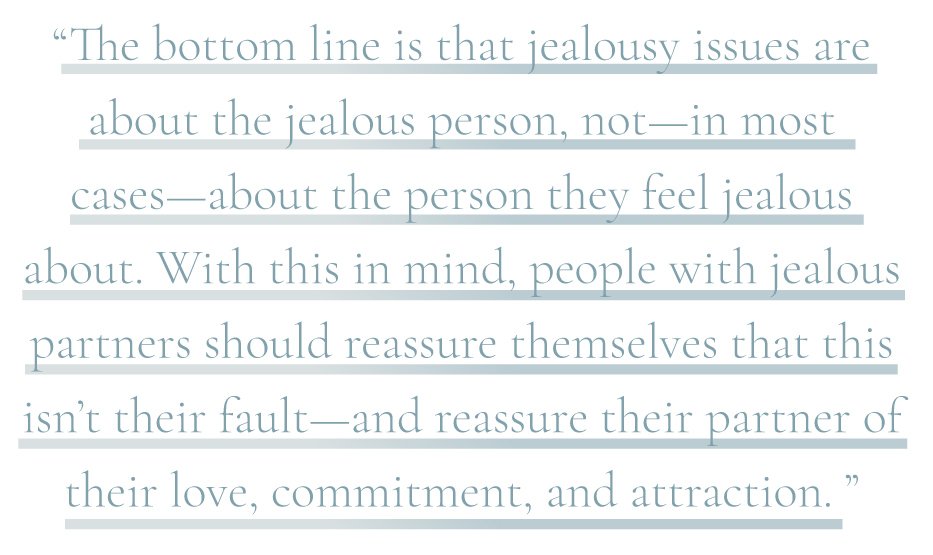February 07, 2020
Jealousy: The Source and the Solution
Romantic jealousy is one of the more prevalent issues that surfaces in our practice. Many clients find themselves veritably consumed by their partner’s every movement – both in real life and in the burgeoning hotbed of jealousy that is the Internet. Wives going through husband’s phones, husbands tracking wives’ expenditures, everyone combing through each other’s online profiles searching for some evidence—of disloyalty, of deception, of whatever it is that they most fear.
Although people seem to instinctively sense that jealousy is neither healthy nor helpful, few understand what is really underpinning this emotion, much less how to make it go away. And despite the common misconception that jealousy is a measure of love, the truth is that jealousy has more to do with the person feeling it than the person about whom it is felt.
So what is jealousy about, then? Research has shown that the following traits—yes, traits, not circumstances—tend to cause jealousy:
1. An insecure attachment style. People with an insecure attachment style consistently fear that they will be abandoned or unloved. If you or your partner fit into this category, the best recourse is to be reassured (or to reassure yourself) that you are loved and supported. Indeed, research has shown that even imagining receiving support from a loved one causes an insecure person to feel less jealous and react less severely in jealous situations.
2. Feelings of inferiority in the relationship. When you fear that your partner is too good for you, or too good in general, jealous feelings can erupt. Here, the best antidote is to shore up your own self-worth. Take on a new hobby, seek achievement in areas where you already shine, and spend time with people who make you feel like your best self. Mirror work—where you look into your own eyes in the mirror and repeat affirmations of self-love—has also been shown to ease feelings of low self-worth and inferiority.
3. Unhealthy dependence. Those who feel that their lives depend on their partner, whether financially, emotionally, or otherwise, can have a tendency toward jealous feelings. Here, the best countermeasure is to establish and strengthen feelings of independence and competence within yourself or your partner. Even reassuring yourself that you would be fine without your partner, would have plenty of other romantic options, and are an attractive and desirable person can alleviate feelings of jealousy.
4. Emotional instability. People with a tendency toward anxiety, neurosis, mood fluctuations, and extreme emotions also incline toward jealousy. For these individuals, it is critical that they exercise good self-care, receive treatment from a therapist, and generally attend to their mental health.
The bottom line is that jealousy issues are about the jealous person, not—in most cases—about the person they feel jealous about. With this in mind, people with jealous partners should reassure themselves that this isn’t their fault—and reassure their partner of their love, commitment, and attraction. Other things that can help a relationship fraught with jealousy:
1. Openness. Don’t hide your actions, friendships, and whereabouts. Don’t conceal your phone or lock up all your devices to keep the jealous partner out. To the extent reasonable and still respecting of your personal space, share your truth with your partner. Although it is understandable to try to shield information from a person who seems to react with jealousy to even innocuous circumstances, covert behaviors will appear suspicious and only fan the flames. Better to be out in the open and address any issues that arise with compassion and candor.
2. No snooping. For the jealous partner, snooping is a vicious feedback loop wherein the more they search, the more they find – and the more suspicious they become. If you know you have jealous tendencies, do not indulge your desire to become Colombo and delve into everything your partner does. Recognize that it will not help, and will only hurt you and the person you love.
3. Communicate. Without blame or anger, share your feelings with your partner. Tell him or her that you are feeling jealous and discuss how to find a solution. Every situation is different, so be sure to seek an outcome that works best for both of you.
Finally, in some instances, jealous feelings are, in fact, a sign that something is wrong. If, for example, your partner is having an affair, or if he or she is engaging in a relationship that violates your intimacy, jealous feelings can be helpful in motivating you to confront your partner and have a serious discussion. But if you cannot come to an agreement, the solution is not to have frequent toxic arguments, have your partner followed, and break into his or her phone. Rather, it may be time to reevaluate whether the relationship is one that is respectful of your needs, and whether you want it to continue. In most cases, however, jealousy is not a smoking gun but rather a grenade. It is important to defuse it before it causes damage to everyone involved. Fortunately, with the right tools, you can.







